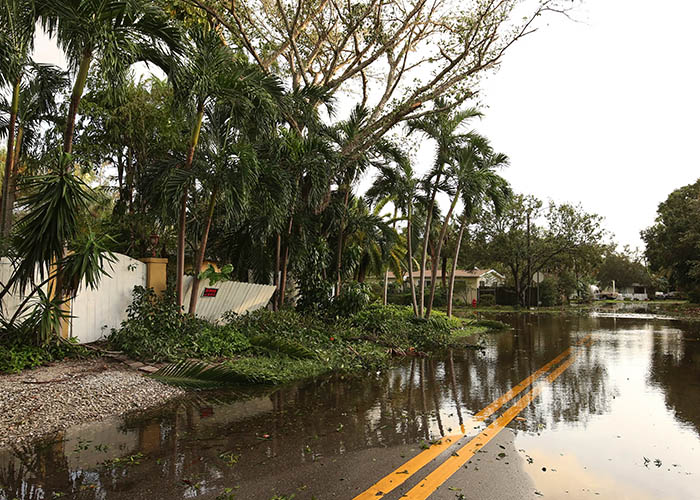What Sort Of Damage Do Tropical Storms Like Hurricanes Cause?
Below are a few forms of property damage that are frequently seen after a major storm like a hurricane or tornado:
- Loss of utilities, including water, heat, and power
- Flood damage from rain
- Deterioration of shingles and roof structure
- Other structural damage to houses, such as the foundation
- Damage to smaller structures like a garage, carport, storage shed, or pool
- Damage to motor vehicles
- Shattered doors and windows
- Damage to trees, shrubs, and other landscape features
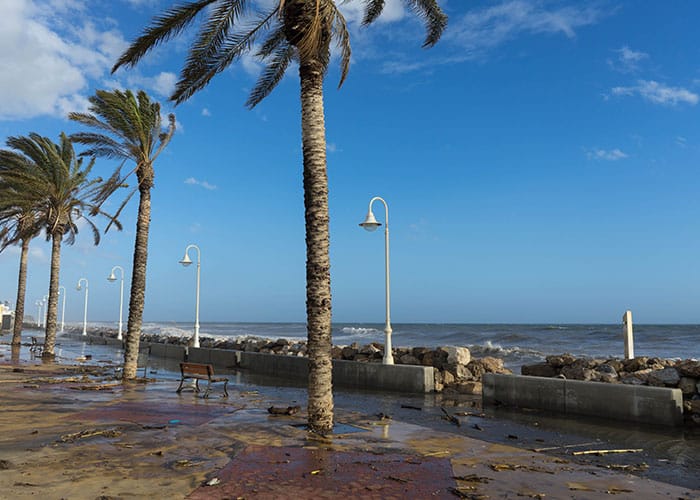
What Damages Are Covered by Hurricane Insurance?
Hurricane insurance doesn't technically exist. As an alternative, most insurance companies offer wind or flood damage insurance. Some states, like Louisiana, Florida, and Texas, offer windstorm insurance. This type of coverage is a separate policy that pays for damage caused by windy storms like hurricanes and tornadoes.
By mixing these various policies, homeowners residing in hurricane-prone regions can get appropriate protection for their houses and properties.
How to File a Hurricane Damage Insurance Claim
To file a hurricane damage insurance claim, you'll first need to contact your insurance provider. A lot of insurance companies allow you to submit a claim online using their website, or you may also be able to do it by phone. Be prepared to give the date of loss and a list of damages brought on by the hurricane. Several insurance providers also offer virtual inspections to expedite the claims process.
How Soon Should I File My Hurricane Damage Claim?
If possible, you should aim to file your hurricane damage claim as soon as you can. Here are a few reasons to file your claim quickly:
- Most insurance providers expect claims to be submitted within 30 days to one year after the damages occurred.
- Submitting a hurricane damage insurance claim right after the hurricane can help show that your damages were a direct result of the storm.
- You may receive a payout sooner.
What Is the Compensation Process for Hurricane Damage Claims?
When it comes to hurricane damage claims, your insurance provider will review your insurance policy to look at the coverage you are paying for, and check that against the list of damages you submitted in your claim.
As the policyholder, you are responsible for submitting a claim and establishing your losses with documents like estimates and receipts to determine the value of your losses, including repair work, short-term housing if your residence is not safe to stay at, and so on. If your damages are covered by your policy, your insurance provider must pay your claim in good faith. Your provider must obey what it says in the policy and respond to your requests in a timely matter.
If an insurance provider is using deceptive tactics or if they're not covering what they should be according to your policy, you may file a bad faith insurance lawsuit against them. A hurricane insurance claim attorney may be able to help you with this process.
Recommendations for Filing a Hurricane Damage Claim
Submitting a claim for property damage is stressful, particularly after something as serious as a hurricane. Here are four tips for filing your hurricane damage insurance claim:
- Review your insurance policy. To reduce the chances of your claim getting denied, read through your policy and identify what types of damages are covered. This will help to lower the risk of receiving a denial.
- Always keep documentation related to your damages. Thoroughly document all your losses brought on by the storm. Take pictures, obtain the estimated values for your losses, and collect receipts. All these things will develop and reinforce the value of your insurance claim.
- Submit your insurance claim as soon as you can. Try to file your claim right away, while still making sure to have proper evidence. Your claim may end up getting denied if too much time passes.
- Think about hiring a lawyer. A hurricane damage claim attorney can help increase the likelihood of your claim being accepted. With an attorney, you can be sure that your claim is filed appropriately. A hurricane damage attorney is also useful if you need help appealing a denied claim or the insurance company doesn't want to cooperate.
What Can I Do if My Provider Doesn't Want to Cover All My Damages?
An insurance policy is a type of contract. That means you have legal rights, and you may exercise those legal rights if your insurance provider refuses to uphold their side of the contract. You may take your case to court, where your insurance provider will have to explain why they aren't covering the damages you submitted. The court will review your policy and decide whether or not the amount you asked for was fair. If the court determines that the settlement offer was low, your insurance provider will be ordered to pay the remaining amount according to your policy. If the court determines that your provider was acting in bad faith, they may be ordered to pay additional fees such as legal costs.
If you're planning to take your case to court, you must be fully prepared. Make sure you have plenty of supporting documents, such as receipts and repair estimates, before filing a lawsuit. You'll need evidence to validate the amount of money you're asking for. The more proof you can provide for the value of your losses, the better your odds are of winning.
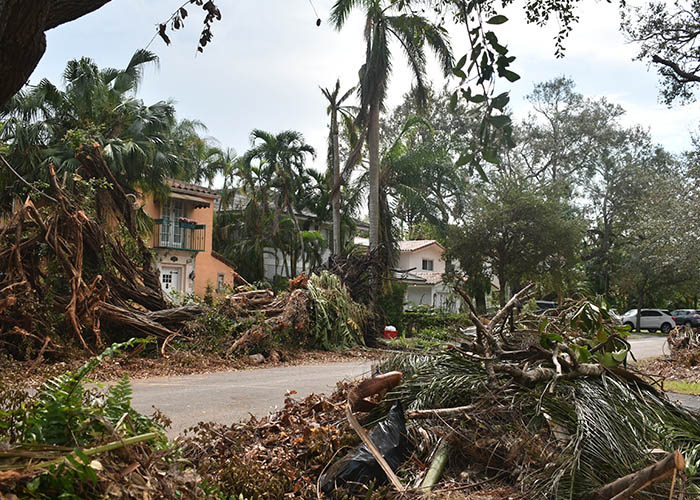
What Is a Hurricane Deductible?
A hurricane deductible is a form of insurance deductible involving storms considered to be hurricanes by the National Weather Service or the National Hurricane Center. This insurance deductible generally requires the policyholder to pay for a portion of their home's insured value as opposed to a dollar amount.
The percentage is typically somewhere between 1% and 5%, and then after that, the insurance company will start to pay out. Look at your insurance policy thoroughly because it might require you to pay a considerable amount before the insurance company steps in to cover your losses.
What Can I Do if My Claim Got Denied?
If your hurricane damage insurance claim was denied and you believe the insurance company is acting in bad faith, you should consider reaching out to an attorney that specializes in insurance claim denials. They can review your policy to see if the insurance company was within its rights to deny the claim, and if not, your attorney can help you through the process of filing an appeal.
If you believe your claim was wrongfully denied, there are two common routes for filing an appeal:
- File an internal appeal. If you choose to file an internal appeal, a different individual employed by your insurance company will review your claim and decide if they think the denial was fair.
- Take your case to court. If you choose this route, an unbiased third party will go over all the information and facts to figure out whether or not your insurance provider breached the contract you have with them (your insurance policy).
Whichever way you decide to go, it can be beneficial to have an attorney on your side throughout the process to ensure everything is filed correctly and on time.
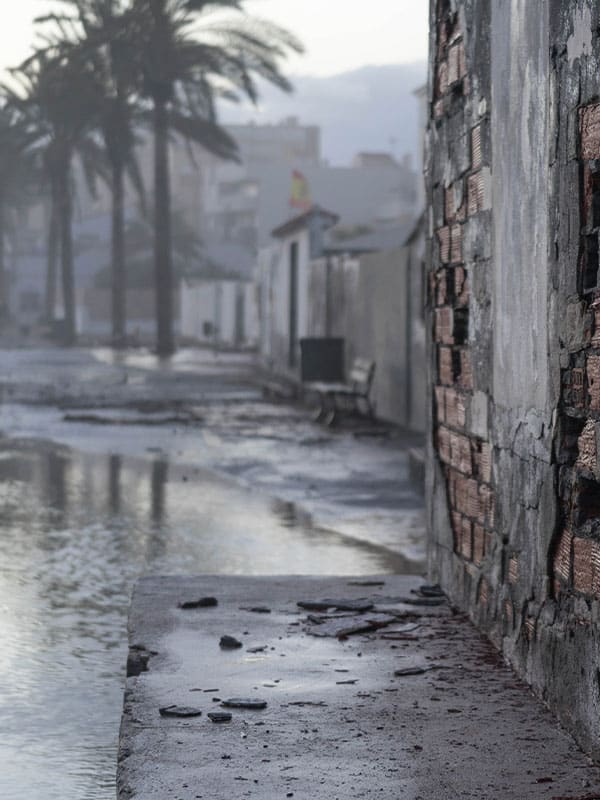
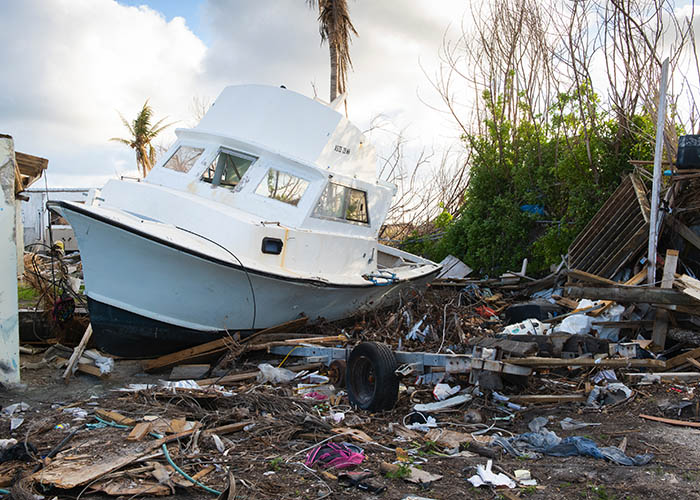
What if I Already Accepted a Settlement Offer?
If you were offered a settlement and agreed to take it, your claim is considered resolved, and you cannot take further action. That's why it's essential to carefully read your insurance policy and put in the legwork of gathering receipts and figuring out the true cost of your damages before deciding to accept an offer. You want to ensure you get the coverage you are entitled to according to your policy.
Reading through contracts can be difficult for someone who doesn't have experience. That's why many people in this situation decide to consult with an attorney. A skilled insurance claim denial attorney is familiar with contract law and understands the language. They know when an insurance company is trying to take advantage of a customer and will hold them accountable.
Will a Hurricane Damage Claim Attorney Be Able to Help Me?
A hurricane damage claim attorney has the skill and experience required to review your insurance policy and make sure the value of your losses is accurate. A lawyer can tell when an insurance company is acting in bad faith and will ensure they fulfill their terms as stated in your contract.
Here are a few other ways a hurricane damage attorney can help:
- Assisting with the claims process from start to finish
- Gathering documents and evidence to build a strong claim
- Ensuring you get what you are entitled to according to your insurance policy
- Holding the insurance company accountable if they are acting in bad faith
- Bringing an appeal to court, if needed
Get in Touch With a Hurricane Damage Claim Lawyer
If you're dealing with the mounting costs of repair bills from damage caused by a hurricane and the insurance company just isn't cooperating, reach out to a knowledgeable insurance claim denial attorney right away. The consultation is free, so call today!
Accepting Clients Nationwide
